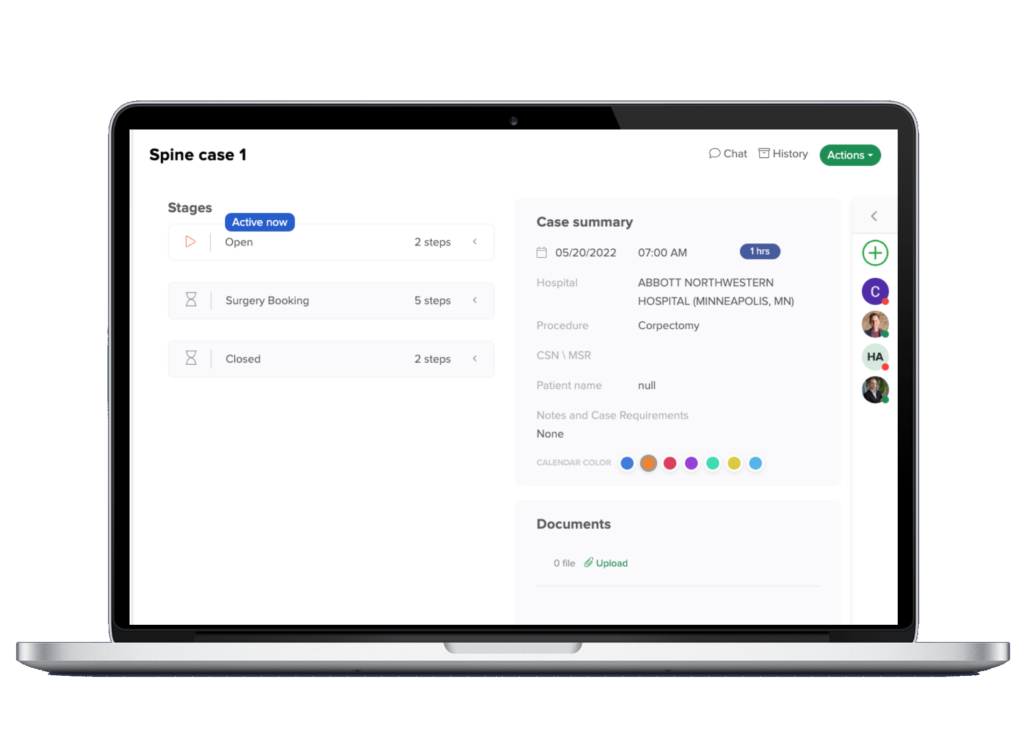The healthcare industry is a dynamic and ever-changing field, with new technologies and processes being introduced at a rapid pace to improve patient care and outcomes. One area that has seen significant growth and innovation in recent years is clinical workflow solutions. These solutions aim to optimize and streamline the workflow in healthcare settings, leading to more efficient systems and ultimately better patient care. They are designed to reduce the administrative burden on healthcare providers, allowing them to focus more on patient care and less on paperwork and administrative tasks.
In this article, we will take a closer look at the clinical workflow solutions market and its projected growth from 2023 to 2028. We will explore what these solutions are, how they benefit healthcare providers and patients, and what factors are driving their growth. We will also examine the key players in the market and the challenges and limitations that may impact the adoption and implementation of these solutions.
What are Clinical Workflow Solutions?
Clinical workflow solutions are software and technology-based systems that aim to improve the efficiency and effectiveness of healthcare workflows. These solutions can be used in various healthcare settings, including hospitals, clinics, and other medical facilities. They typically involve the use of electronic health records (EHRs), computerized physician order entry (CPOE), and other digital tools to automate and streamline processes. These solutions are designed to integrate seamlessly with existing systems, making it easier for healthcare providers to adopt and use them, thus enhancing integrated healthcare.
Benefits of Workflow Optimization
The primary goal of clinical workflow solutions is to optimize the workflow in healthcare settings. This can lead to a range of benefits, including:
Improved Efficiency
By automating and streamlining processes, clinical workflow solutions can help healthcare providers save time and resources, allowing them to focus on patient care. This can also lead to faster patient turnaround times, reducing wait times and improving patient satisfaction. Efficient care coordination and healthcare communication are critical for successful patient outcomes.
Enhanced Patient Care
With more efficient systems in place, healthcare providers can spend more time with patients, leading to better communication and improved outcomes. This can also lead to a more personalized approach to care, as providers have more time to understand each patient’s unique needs and preferences. This is supported by patient management software and medical case management software.
Reduced Errors
By digitizing processes and eliminating manual tasks, clinical workflow solutions can help reduce the risk of human error, leading to improved patient safety. This can also lead to more accurate and reliable data, which can be used to inform decision-making and improve patient outcomes. Enhanced healthcare document management ensures that all patient information is accurate and up-to-date.
Cost Savings
By optimizing workflows, healthcare facilities can save on operational costs, such as paper and storage, and potentially reduce the need for additional staff. This can also lead to more efficient use of resources, reducing waste and improving sustainability. Efficient medical inventory management also contributes to cost savings.
Market Growth Analysis
The global clinical workflow solutions market is expected to see significant growth in the coming years. According to a 2023 report by MarketsandMarkets, the market is projected to reach a value of USD 26.5 billion by 2028, growing at a CAGR of 11.2% from 2023 to 2028. This growth can be attributed to several factors, including the increasing adoption of EHRs, the growing demand for efficient systems in healthcare settings, and the ongoing digital transformation in the healthcare industry.
Rising Adoption of EHRs
Electronic health records have become an essential part of healthcare systems, with many countries implementing policies to encourage their adoption. EHRs allow for the digitization of patient records, making them easily accessible to healthcare providers and improving the overall efficiency of healthcare workflows. As the adoption of EHRs continues to rise, the demand for clinical workflow solutions is also expected to increase. Furthermore, the integration of EHRs with other digital tools and technologies, such as artificial intelligence and machine learning, is expected to further drive the growth of the clinical workflow solutions market.
Growing Demand for Efficient Systems
The healthcare industry is under constant pressure to improve efficiency and reduce costs while maintaining high-quality patient care. This has led to a growing demand for efficient systems, such as clinical workflow solutions, that can help streamline processes and improve overall workflow. As healthcare facilities look for ways to optimize their operations, the demand for clinical workflow solutions is expected to rise. Additionally, the ongoing shift towards value-based care, which emphasizes efficiency and outcomes over volume, is also expected to drive the demand for clinical workflow solutions.
Key Players in the Market
The clinical workflow solutions market is highly competitive, with several key players dominating the industry. Some of the leading companies in the market include:
- Allscripts Healthcare Solutions, Inc.
- Cerner Corporation
- GE Healthcare
- Koninklijke Philips N.V.
- McKesson Corporation
- Siemens Healthineers
- Xerox Corporation
These companies are constantly investing in research and development to improve their products and stay ahead of the competition. They are also actively involved in partnerships and collaborations to expand their market reach and offer a wider range of solutions to healthcare providers. Furthermore, these companies are focusing on developing innovative solutions that leverage the latest technologies, such as artificial intelligence and machine learning, to further enhance the efficiency and effectiveness of healthcare workflows.
Regional Analysis
The clinical workflow solutions market is segmented into North America, Europe, Asia Pacific, and the rest of the world (RoW). North America currently holds the largest share of the market, followed by Europe. This can be attributed to the high adoption of EHRs and other digital technologies in these regions. However, the Asia Pacific region is expected to see the highest growth rate during the forecast period, driven by the increasing demand for efficient systems in emerging economies such as China and India. Furthermore, government initiatives to improve healthcare infrastructure and increase the adoption of digital technologies in healthcare are also expected to drive the growth of the market in this region.
Challenges and Limitations
While the clinical workflow solutions market is expected to see significant growth, there are also some challenges and limitations that may hinder its progress. These include:
High Implementation Costs
The initial investment required to implement clinical workflow solutions can be a barrier for some healthcare facilities, especially in developing countries. However, the long-term benefits and cost savings can often outweigh the initial costs.
Resistance to Change
The adoption of new technologies and processes can be met with resistance from healthcare providers who are used to traditional methods. However, with proper training and support, this resistance can be overcome.
Data Security Concerns
With the digitization of patient records, there is a growing concern about data security and privacy, which may hinder the adoption of clinical workflow solutions. However, advances in data encryption and other security technologies are helping to address these concerns.
Conclusion
The clinical workflow solutions market is expected to see significant growth in the coming years, driven by the increasing adoption of EHRs and the growing demand for efficient systems in healthcare settings. These solutions offer a range of benefits, including improved efficiency, enhanced patient care, and cost savings. However, there are also challenges and limitations that need to be addressed to ensure the successful implementation and adoption of these solutions. As the healthcare industry continues to evolve, clinical workflow solutions will play a crucial role in optimizing workflows and improving patient care. With the ongoing digital transformation in healthcare, the importance of these solutions is only expected to increase in the future.








